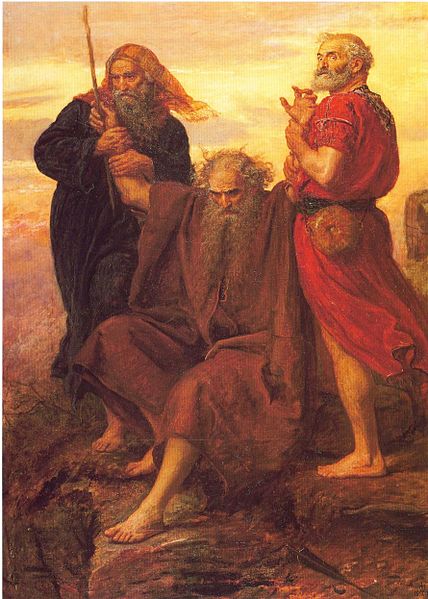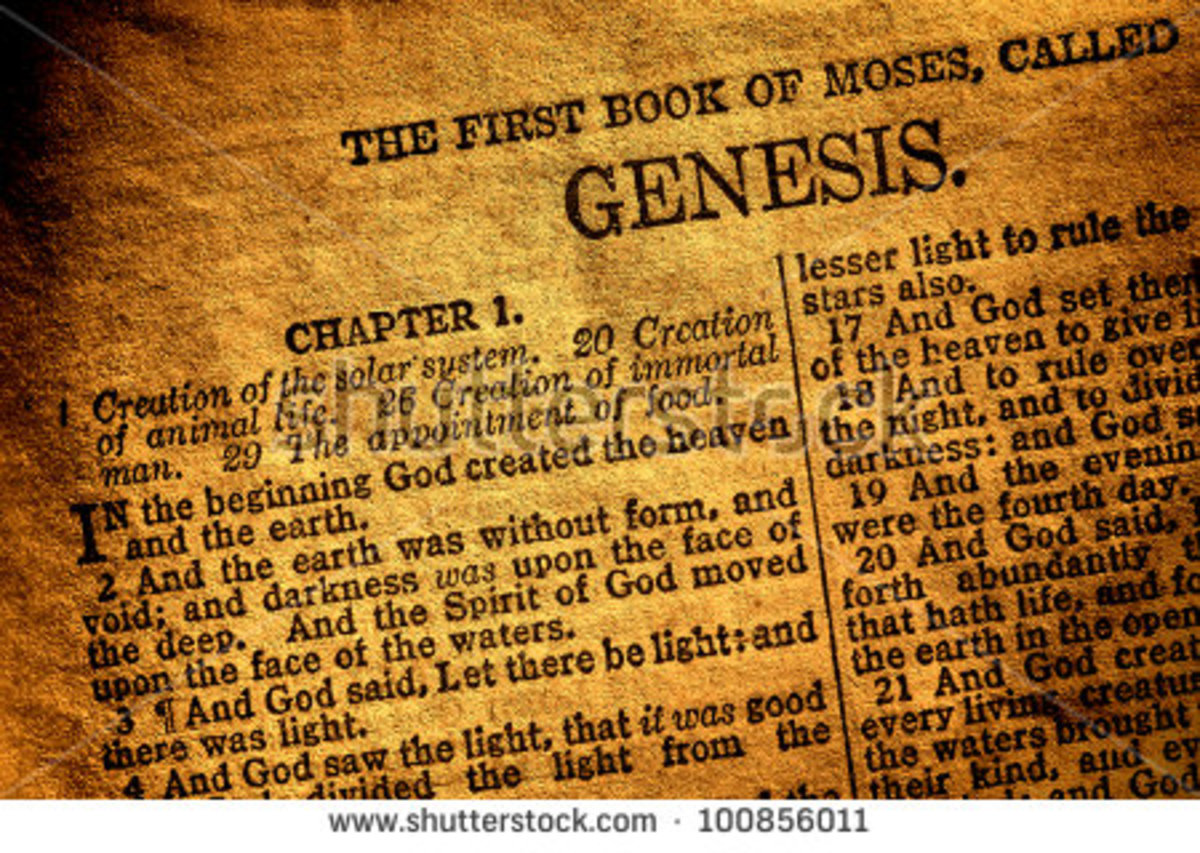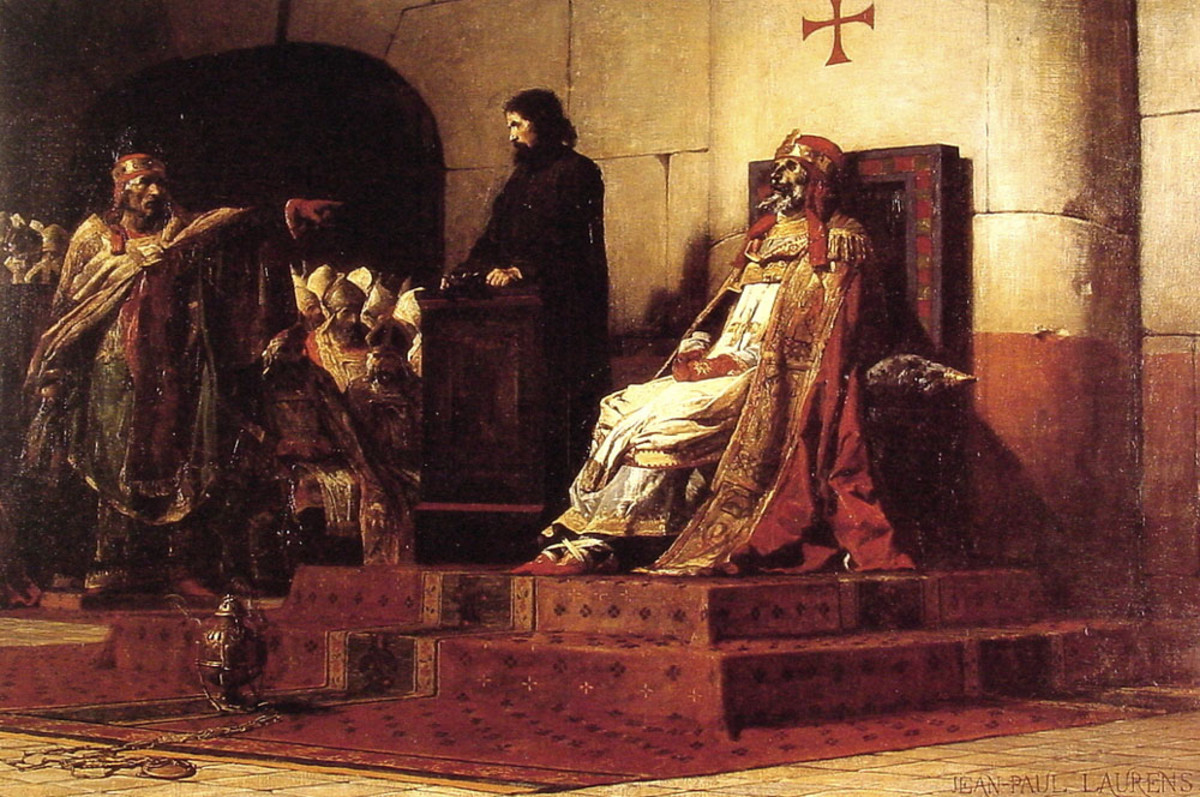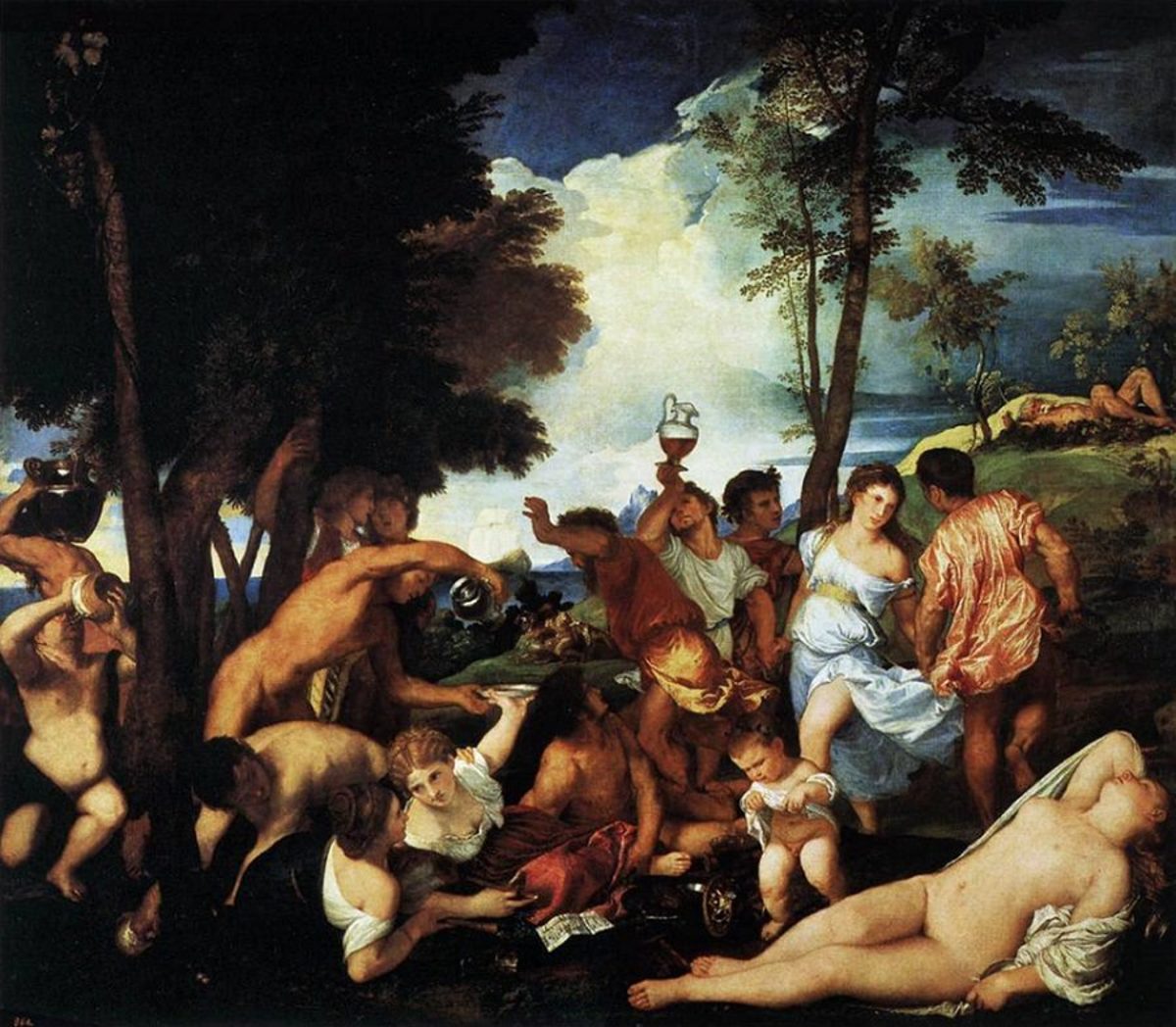Who Are Saints? -According to the Bible
What Is A Saint?
It is a well known fact that the word 'saint' appears in the Bible. What is lesser known about this word is the fact that it first appears in the Old Testament. The word 'saint' is used in the book of Deuteronomy showing us that saints of God existed and lived since the beginning.
But, what is a Saint?
Webster's dictionary defines a saint as " A person sanctified; a holy or godly person;one eminent for piety and virtue; any true Christian as being redeemed and consecrated to God."
Most people think that saints are those who are recognized as saints by the Roman Catholic church, Eastern Orthodox church, Anglican church or Coptic Orthodox church. Although the saint, according to the Bible, is one who follows after God, the word has changed to mean a more specific thing in certain churches. Because of the belief in Purgatory, the R.C. church refers to the saints as 'those who have led extremely holy lives and who are able to do miracles even from the grave'. New saints are declared often but one must go through many tests before one is declared a saint in the Roman Catholic church.
There are many people who have been declared as saints over the centuries in the varying churches. The Roman Catholic church alone has declared over 10,000 people as saints. These people have moved on from this temporal life into an eternal one, and, according to the church, because of their holiness, they can intercede for those on earth and help them win the favor of God. Saints are usually declared as saints because of miracles that were done during their lifetime and answers to prayer that were achieved after their lives were spent.
But is this truly what a saint is?

Men Of God In The Old Testament - Are They Saints?
The men of God in the Old Testament admittedly did many of the things that certain churches require people to have done in order to be saints. Yet, these people are not declared as saints in some churches simply because they were on earth before Christ and not on earth with Him or after Him.
In the Roman Catholic church, when one is being confirmed, one has to chose a saint whose life causes inspiration. This saint is chosen because the person being confirmed can publicly declare that they would like to be most like them. Those being confirmed are not allowed to choose people like Moses or Elijah and Elisha because they are from the Old Testament and not the New Testament. Yet Moses and Elijah appeared with Jesus on the Mount in the New Testament. (See Matthew 17). Obviously, both Moses and Elijah were considered and are considered worthy to be in the presence of the Lord since He allowed them to stand with Him on the Mount.
The men of God in the Old Testament were called men of God because they walked with Him and He with them. They did mighty feats because of Him,yes, but even when they were ordinary He did show that He favored them and it was recorded as such. This was because they all believed in the Messiah and in the coming of the Lord Jesus Christ.
Some of the things the men of God did in the Old Testament through the power of the Holy Spirit were:
- raise the dead
- part the waters
- heal the sick
- defeat giants
- create a nation
- save nations
- defeat mighty armies.
They served God and followed Him and were acknowledged for doing so by those in the New Testament. (See Hebrews 11)
The men of the Old Testament who served God and did not turn away from His way were and are saints.
Do the men of God in the Old Testament count as saints as well?
Men Of God In The New Testament - Are They Saints?
Most people of the New Testament, the ones who followed Christ, are considered to be saints by various denominations. Saint Peter, Saint Paul, Saint Jude and Saint John are all well known and generally accepted as saints. However, these men of God refer to as others as saints. As a matter of fact, they refer to as saints all those who follow after and believe in Jesus Christ. Whether great or small, whatever the function, once a part of the Bride of Christ, those who were mentioned in the New Testament, who followed after Jesus, were saints of God.
If these men of God, who were undoubtedly devoted to the Lord God of Hosts, did not flinch to call those who followed Christ with them saints, then wouldn't they be?
Those who loved and followed after Christ in the New Testament were also saints of God.
Two Verses In Revelation About The Saints
And when he had taken the book, the four beasts and four and twenty elders fell down before the Lamb, having every one of them harps, and golden vials full of odours, which are the prayers of saints. (Revelation 5:8 K.J.V.)
And another angel came and stood at the altar, having a golden censer; and there was given unto him much incense, that he should offer it with the prayers of all saints upon the golden altar which was before the throne. (Revelation 8:3 K.J.V.)
Are There Saints of God Existing Today?
The Bible ends with the Book of Revelation. In it the saints are mentioned. These saints are not named and so one cannot be certain who the saints are specifically unless their lives are examined personally. It was said by Jesus that they will be known by their fruits and so the type of life a person leads does give one an idea of whether or not that person is a saint of God according to the Bible.
If there are saints of God existing today then spotting them would not be a very hard thing to do. The saints of God follow after Him and walk in His way. They believe that Jesus is the Christ and that He is the only way to heaven. They acknowledge Him as Judge, as King, as Priest and as Prophet and agree with John the Baptist when he says, 'He must increase. I must decrease.' These are those He calls His saints.
©








